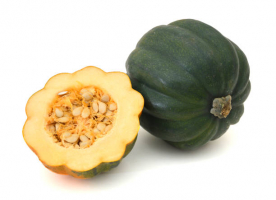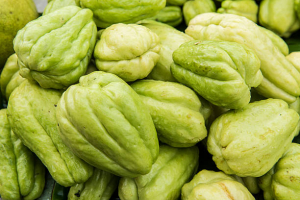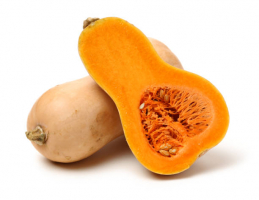Top 10 Health Benefits of Squash
All a health-conscious person needs from food is deliciousness, nutrition, convenience that can be quickly found anytime, anywhere, and enough energy for an ... read more...effective working day. If that's what you're looking for then squash is for you. Squash belongs to the Cucurbitaceae family of vegetables and includes all sorts of pumpkins, melons, zucchinis, etc. Squash with a delicious taste in daily meals has created an indispensable position in everyone's culinary menu. Besides, squash is also nutritious and brings health benefits that you may not know yet. So, let's learn about the uses of pumpkin with Toplist! Through this article, many secrets will be revealed from why squash is good for your health and heart to tips for using squash and the most delicious squash dishes.
-
Vision loss with age is quite common in anyone. Rich in nutrients that have been connected to maintaining vision as you age is the squash. Blindness is frequently caused by a vitamin A deficiency. Beta-carotene, which helps your body produce vitamin A, is abundant in squash. According to research, those who consume a lot of beta-carotene are less likely to acquire cataracts.
Squash is also one of the foods with the highest concentrations of lutein and zeaxanthin, two substances that have been associated with an increased risk of cataracts and age-related macular degeneration (AMD). Additionally, squash has significant amounts of vitamins C and E, which have antioxidant properties and help stop free radicals from harming the cells in your eyes.

Helps protect eyesight 
Helps protect eyesight -
The metabolism in your body produces chemicals known as free radicals. These ingredients help eliminate dangerous germs. However, you will over oxidative stress, which has been connected to chronic ailments like cancer and heart disease, which arises when your body produces too many free radicals.
Beta-cryptoxanthin, alpha-carotene and beta-carotene are antioxidants found in squash. These are compounds that have the ability to neutralize free radicals and stop them from causing cell damage. Squash is a nutritious food. By reducing the signs of blood vessel obstruction brought on by cholesterol buildup, squash's strong antioxidant content aids to prevent heart disease complications including heart attacks and stroke. Additionally, these antioxidants shield skin from UV damage and lower the risk of cancer, eye problems, and other illnesses.
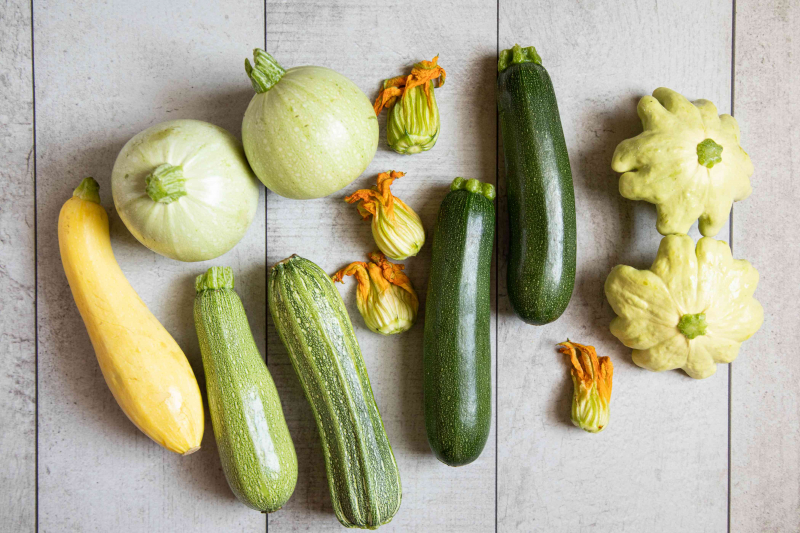
Reduce the risk of chronic disease 
Reduce the risk of chronic disease -
Everyone frequently is aware that veggies have extremely few calories, and squash is no exception. Due to its low-calorie content, squash is frequently employed as a weight loss aid by several individuals. Nutritionists estimate that 100g of zucchini only comprises 15–17 calories. Squash has few calories but is high in fiber, calcium, iron, vitamins, and other beneficial minerals. In particular, squash contains nearly little fat.
Squash is a superfood because according to a study it includes a lot of dietary fiber that is great for the digestive system, nearly no fat, and the capacity to prevent the body from storing extra fat. This is a good idea for women's "delicious - nutritious - cheap" weight loss. Pumpkin is a reasonable food for weight loss because you can consume more than other carb sources such as: such as rice and potatoes and still lose fewer calories. In addition, squash contains fiber, which can help curb your appetite.
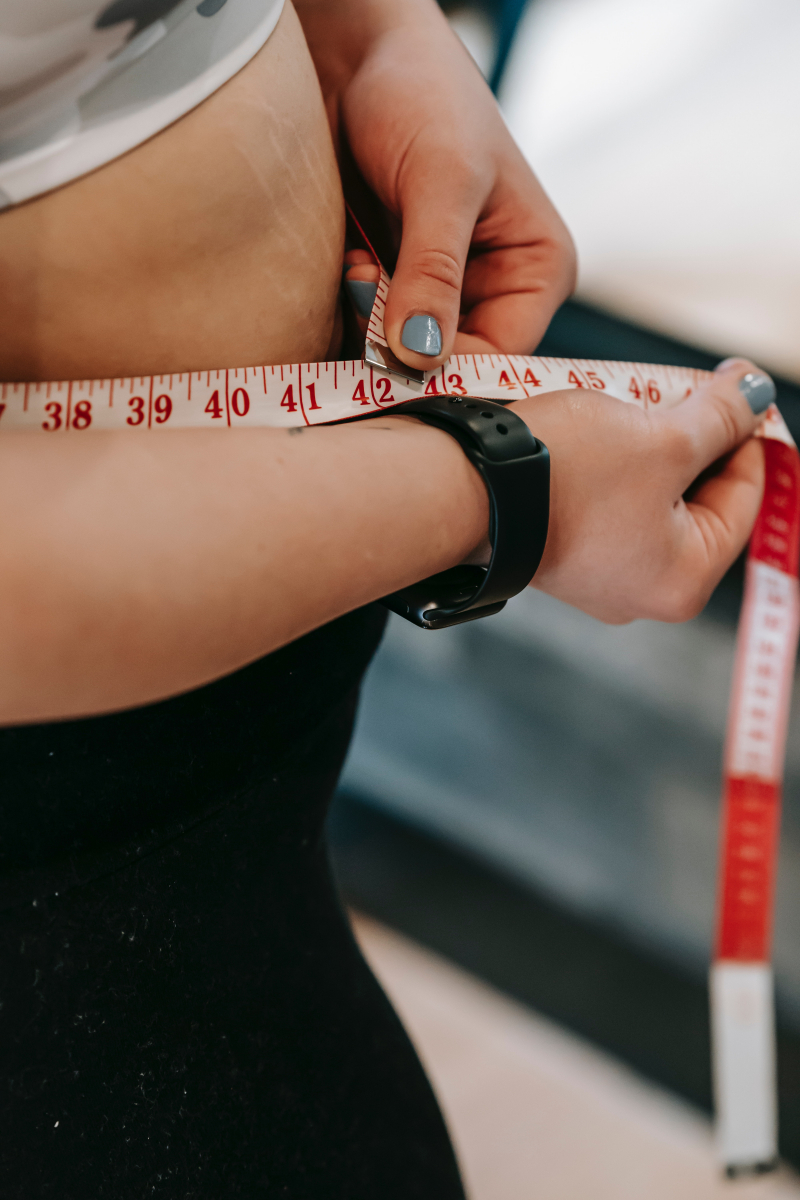
Helps with healthy weight loss 
Helps with healthy weight loss -
Squash is a high-fiber food, 25 to 30 grams of fiber per day are advised. Fiber encourages regular bowel motions and easier digestion while also slowing the pace at which sugar is taken into circulation. Squash consumption can also lessen the risk of colon cancer.
Squash, which contains high quantities of vitamins, minerals, and antioxidants, can support the health of your digestive system. Squash's fiber content assists the digestive system and prevents constipation. Meanwhile, research suggests that this meal also aids in lowering the sensations of bloating and stomach pain by relaxing the smooth muscles in the digestive tract. To benefit from squash's health properties, you should include it in your diet!
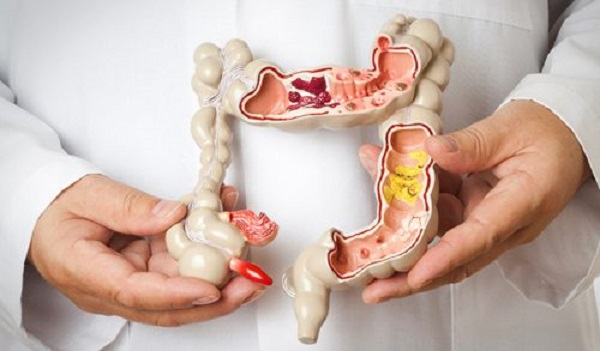
Digestive system support 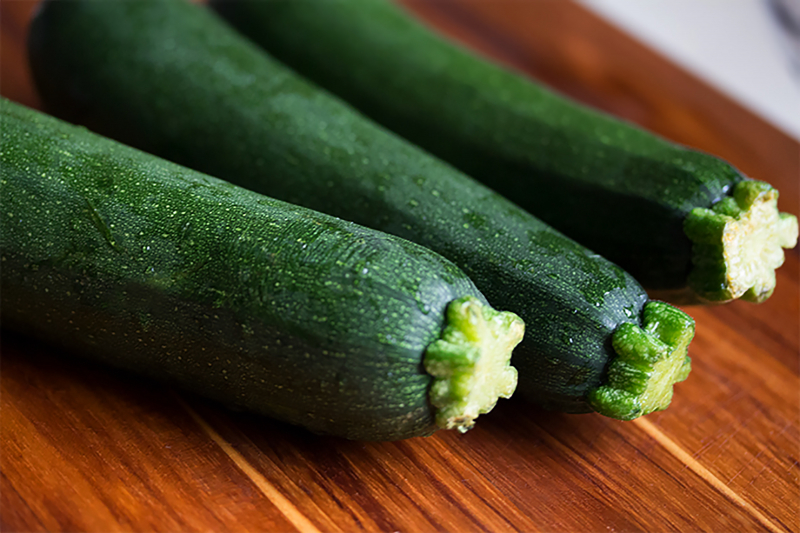
Digestive system support -
Resistance is the body's capacity to protect itself from the detrimental invasion of outside agents like viruses, germs, and parasites. The body's resistance is created by the immune system with specific immune cells that recognize and destroy foreign agents.
The minerals in squash might strengthen your immune system. The body converts beta-carotene, which is abundant in squash, into vitamin A. You can strengthen your immune system and fight infections using vitamin A. On the other hand, those who lack vitamin A may have weakened immune systems. Squash is also a good source of vitamin C, which has been found to stimulate the formation of white blood cells, improve the function of immune cells, and hasten the healing of wounds. In addition, squash is also a good source of vitamin E, iron, and folate, which have been shown to support the immune system.
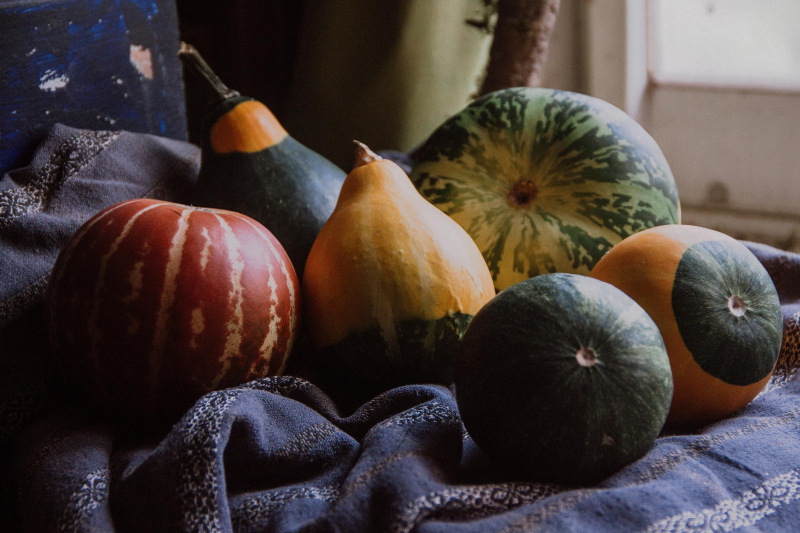
Strengthen resistance 
Strengthen resistance -
Not only nutritious food but also a "best friend" for women's skin because pumpkin contains more than 100 nutrients that are beneficial to the skin, including vitamin C, and beta-carotene,... According to studies, carotenes like the beta-carotene found in squash can serve as a natural sunblock. After consuming squash, carotenoids are delivered to several organs, including your skin, where they assist to shield skin cells from UV radiation damage.
Vitamin C, which is crucial for healthy skin, is also abundant in squash. To produce collagen, a protein that maintains the health of your skin, your body requires this vitamin. In addition, squash has various antioxidants, including lutein, zeaxanthin, vitamin E, and many more, all of which have been found to improve the skin's protection against UV radiation.
Promotes healthy skin 
Promotes healthy skin -
Squash has significant quantities of potassium, vitamin C, and fiber, all of which can help to enhance your heart health. According to studies, persons who consume a lot of potassium had lower blood pressure and a decreased chance of stroke, both of which are risk factors for heart disease.
In addition, squash has a lot of antioxidants that prevent LDL cholesterol from oxidizing. Your blood arteries may narrow and your risk of heart disease may rise if oxidized LDL cholesterol clots along their walls. Potassium, vitamin C, fiber, and antioxidants are abundant in squash. The advantages of squash in preserving your heart health care are provided by these elements.

Beneficial for heart health 
Beneficial for heart health -
Cancer is a dangerous condition marked by abnormal cell proliferation. Free radicals are created by cancer cells to aid in their fast cell division. Carotenoids, which are substances that can function as antioxidants, are abundant in squash. By scavenging free radicals, you may be able to defend your body from some types of cancer.
Squash contains cucurbitacins, which is one of its constituents. Numerous studies demonstrate the value of these substances in treating cancer by destroying various cancer cell types. The antioxidants included in squash can prevent cancers brought on by oxidative stress, pollution, and other toxins. Squash is also regarded as another successful treatment for prostate cancer. Phytosterols, zinc, and essential fatty acids are components in squash that can slow the progression of prostate cancer.

Reduce the risk of cancer 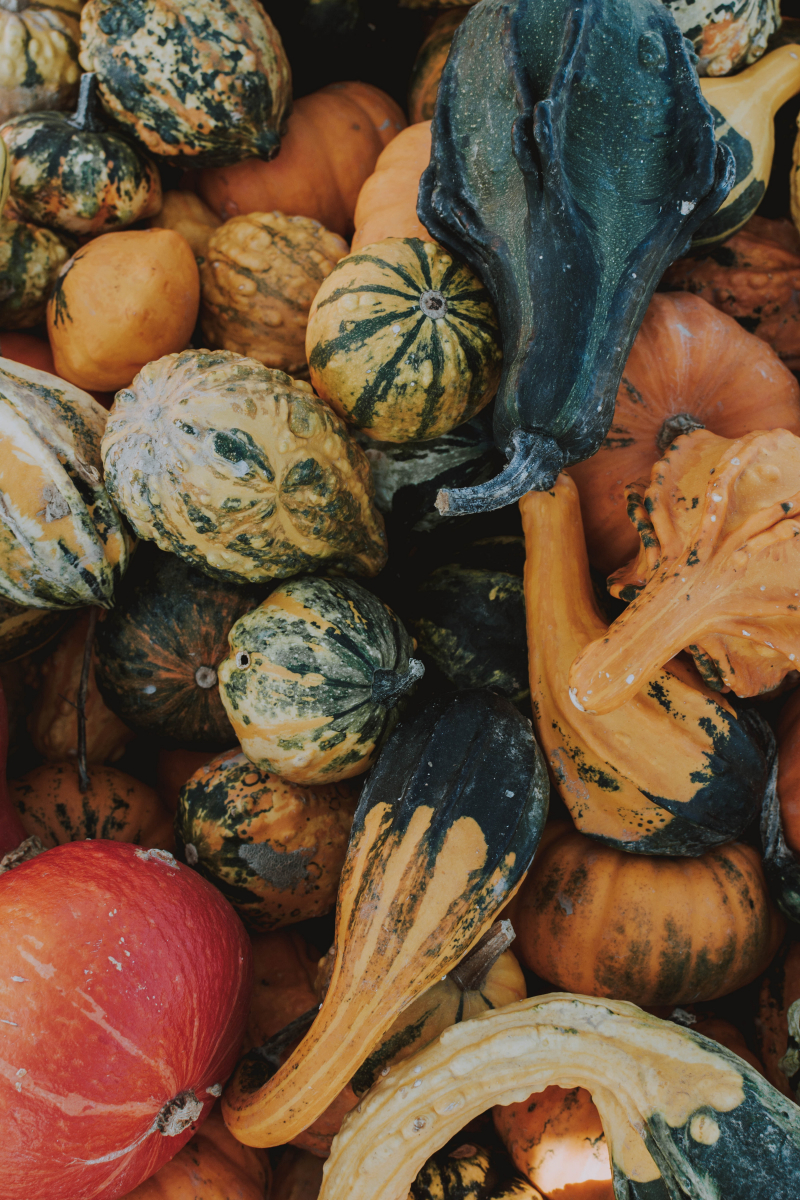
Reduce the risk of cancer -
Squash contains large amounts of Nicotinic acid, Trigonelline, and D-Chiro-inositol. Studies have proven that Nicotinic acid and D-chiro-inositol help stabilize blood sugar and prevent the risk of diabetes. Diabetics are recommended to eat squash daily to control blood sugar. They contain high levels of vitamin C, which is a source for insulin mimicry in the body and when consumed orally can help control diabetes.
In addition, squash is rich in folic acid, so it is also an ideal food for people with diabetes. The plant compounds in squash can help absorb glucose into the tissues and intestines, as well as balance the liver's glucose levels. Squash has been linked to a reduced risk of type 2 diabetes, but this effect has not been clearly demonstrated. The researchers believe that the compounds found in squash can be made into anti-diabetic drugs, this idea needs to be studied further in the use of pumpkin in the treatment effect.
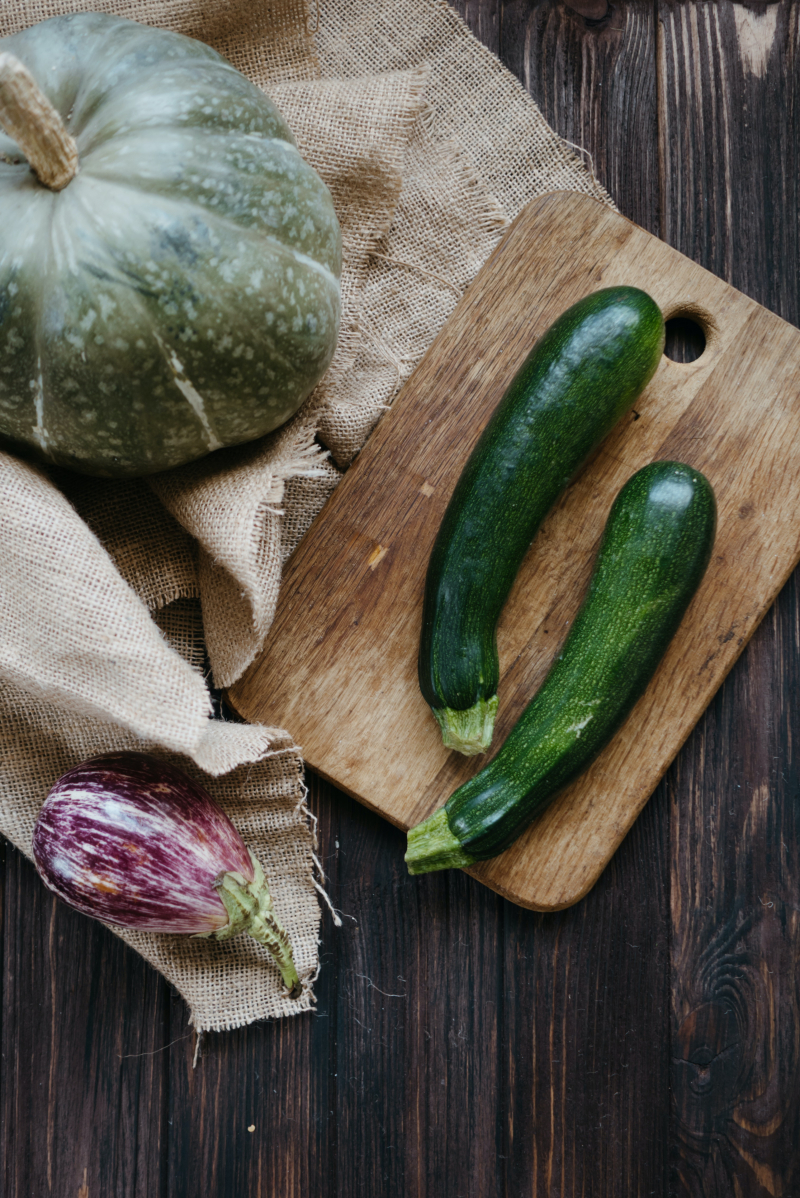
Prevent diabetes 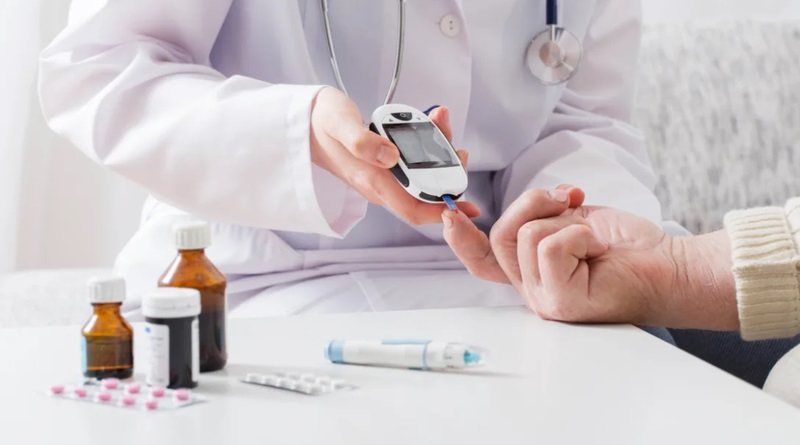
Prevent diabetes -
Consuming potassium might actually lessen the negative effects of salt on your body. Since squash has a high potassium content, one of its major health advantages is that it helps maintain normal blood pressure. Squash also has peptides that can neutralize and lower cholesterol as well as repair damaged insulin-producing cells, which raises blood insulin levels.
Additionally, according to studies, increasing your intake of foods high in potassium would lower your blood pressure similarly. Therefore, if you frequently experience tension, anxiety, or high blood pressure, you should include squash and other potassium-rich foods in your diet. Squash is a nutrient-rich vegetable that you must consume if you want to keep your blood pressure system functioning properly.

Supports healthy blood pressure 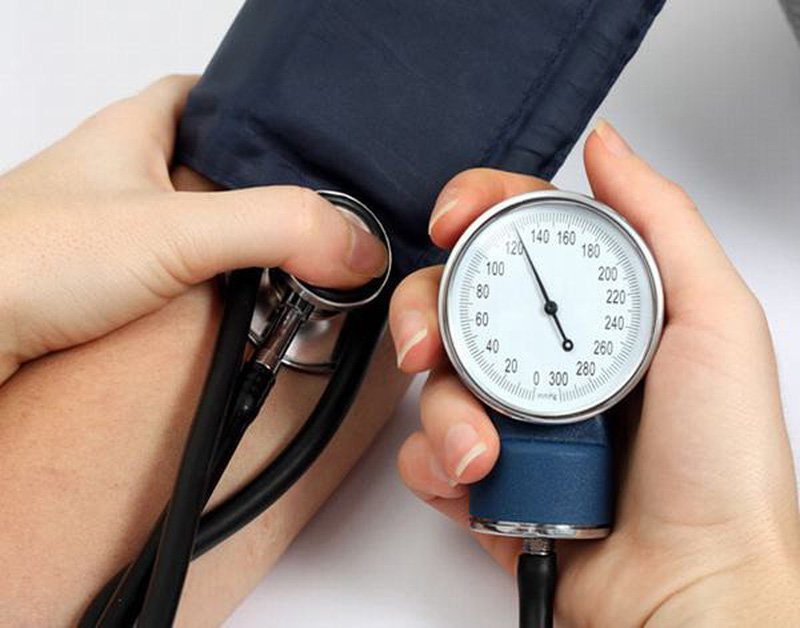
Supports healthy blood pressure












